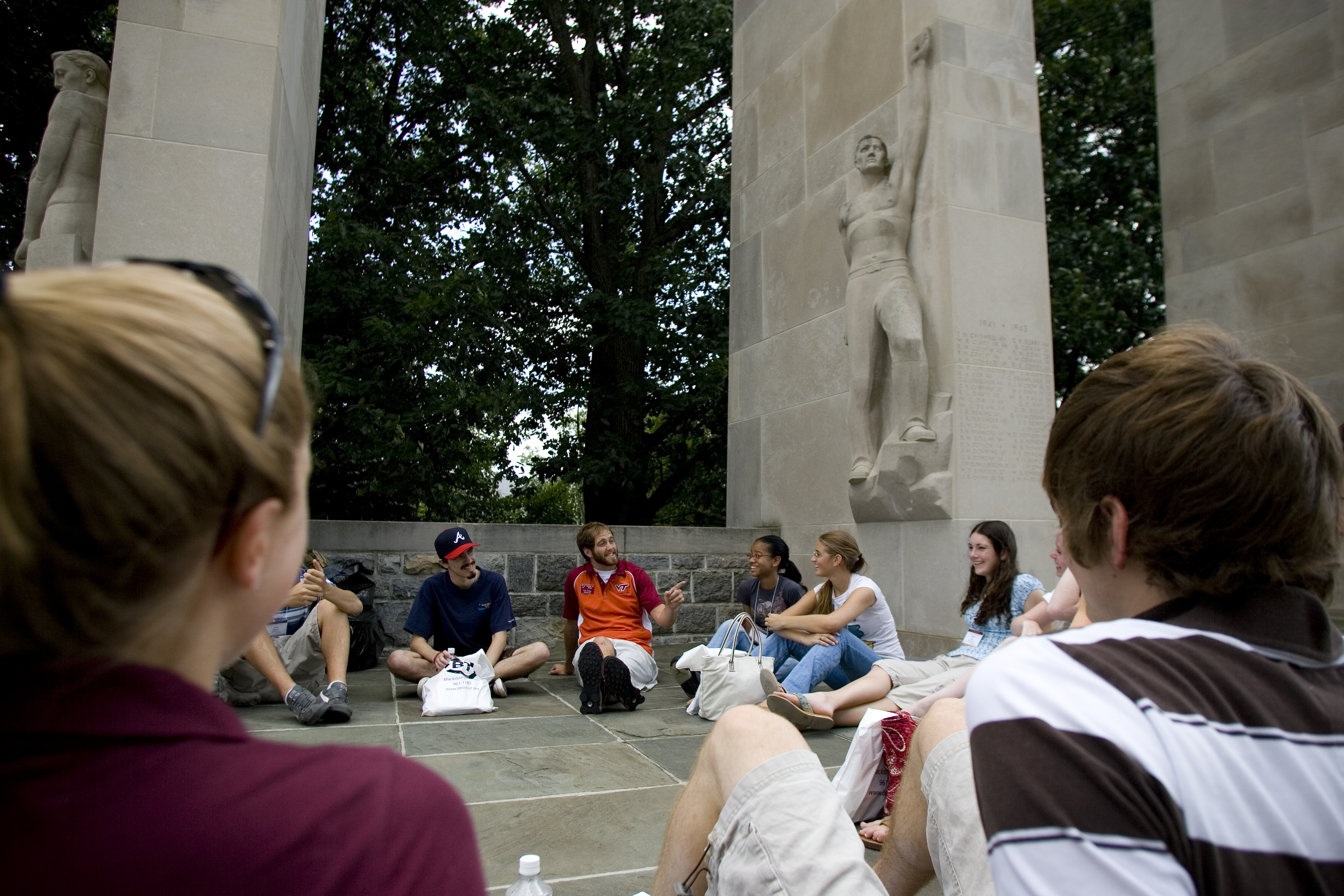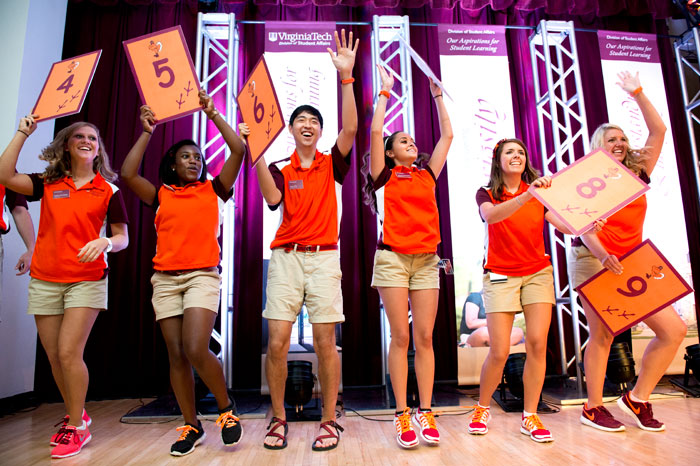Welcome to the Class of 2018: A snapshot of the newest undergraduate students

Starting today, Hokie Nation will gain approximately 6,400 new undergraduate students. These new students include approximately 5,400 freshmen and 1,000 transfer students.
Applications for undergraduate admissions were received from 40 countries and every state in the United States except North Dakota and South Dakota.
Applications are reviewed holistically, meaning many criteria are examined.
In addition to the typical academic performance items that include rigor of curriculum, grades, and standardized test scores, a team of 13 Office of Undergraduate Admissions staff members reviews all materials submitted by applicants.
"We try very hard to personalize the application process for our students," said Mildred R. Johnson, associate vice president for enrollment management and director of undergraduate admissions. "I believe we must take a holistic approach to application review because each applicant has a different story that such a review can reveal. The most important thing we can do is to consider an applicant’s credentials in a thoughtful way.
"A holistic review helps us determine which applicants will be the most successful at Virginia Tech. A testament to this is the university's retention rate of 91.4 percent."
Of those incoming undergraduate students, nearly 350 opted to participate in Virginia Tech's Summer Academy this year and arrived on campus in July. The academy began in 2012 and participation has tripled since its inception.
Participants not only benefit from the opportunity to launch their academic career in a small classroom environment; move into their residence halls early; and learn their way around campus and the Blacksburg community, they receive a great academic benefit because 70 percent of those who participated in Summer Academy earned a grade point average of 3.0 (on a 4.0 scale) or higher.
In addition to Summer Academy participants, nearly every new undergraduate student visited campus over the summer to attend New Student Orientation. There, they were able to learn more about what it means to be a part of the Virginia Tech community, meet current and other incoming students, and register for fall semester classes.
New Hokies at a glance
While the majority of new students are from Virginia (more than 4,600), about 1,800 represent other states, territories, and countries. The top states after Virginia, by order of enrollment, are Maryland, New Jersey, Pennsylvania, North Carolina, and New York.
The top three states of incoming out-of-state transfer students included Maryland, New Jersey, and California. The top five countries by order of enrollment are China, India, United Arab Emirates, Turkey, Malaysia, and Indonesia.
The most popular academic programs for incoming freshmen by order of enrollment are, general engineering; university studies; biological sciences; business; human nutrition, foods, and exercise; physics; mathematics; animal and poultry sciences; chemistry; and business information technology.
The most popular academic programs for incoming transfers by order of enrollment are, general engineering, biological sciences, finance, business information technology; and a three-way tie between accounting and information systems; communication; and human nutrition, foods, and exercise.
The Class of 2018 includes:
- 429 international students;
- 326 students participating in the Virginia Tech Corps of Cadets;
- 130 valedictorians and salutatorians;
- 1,344 high schools represented by students;
- 1,712 legacies (meaning their mother, father, grandparent, sister, and/or brother previously attended the university); and
- 30 sets of twins.
Dedicated to its motto, Ut Prosim (That I May Serve), Virginia Tech takes a hands-on, engaging approach to education, preparing scholars to be leaders in their fields and communities. As the commonwealth’s most comprehensive university and its leading research institution, Virginia Tech offers 240 undergraduate and graduate degree programs to more than 31,000 students and manages a research portfolio of $513 million. The university fulfills its land-grant mission of transforming knowledge to practice through technological leadership and by fueling economic growth and job creation locally, regionally, and across Virginia.





